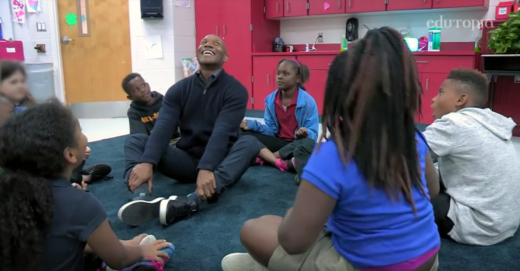Educators are increasingly aware of how trauma that students experience in their lives outside school affects learning in the classroom. And while this isn't new information, focusing on how to make the learning environment a safe, nurturing place where those students can succeed has become a robust topic of conversation in many districts. Some teachers worry that trauma-informed practices will mean more work for already overburdened teachers, but others respond that using a trauma-informed approach makes the rest of their job easier.
"There was a big mind shift for me especially," said Natalie Vadas, an exceptional education teacher at Fall-Hamilton Elementary School in Nashville, Tennessee. "My students might have had a bad day, something might have happened at home, no one was home last night. You can't just be like, come in and do math now. So, when they know they can trust you and they start to talk to you, their academics start to blossom."
Edutopia profiled Fall-Hamilton Elementary for a series on shifting to trauma-informed practices and the impact it has made on learning there.
"The old approach was you're at school, you need to be at school, and play school," said Fall-Hamilton Principal Mathew Portell. "And it was compliance-driven. But the trauma approach is taking a completely different lens. They have to feel safe. They have to feel nurtured. And they have to feel supported."
The school's neighborhood near downtown Nashville is seeing a lot of gentrification, which means many students and their families are being displaced. Understanding that these young people can't leave those traumas at the door, and that they are still developing emotionally and cognitively, has been a bedrock of this school's shift to trauma-informed practice.


